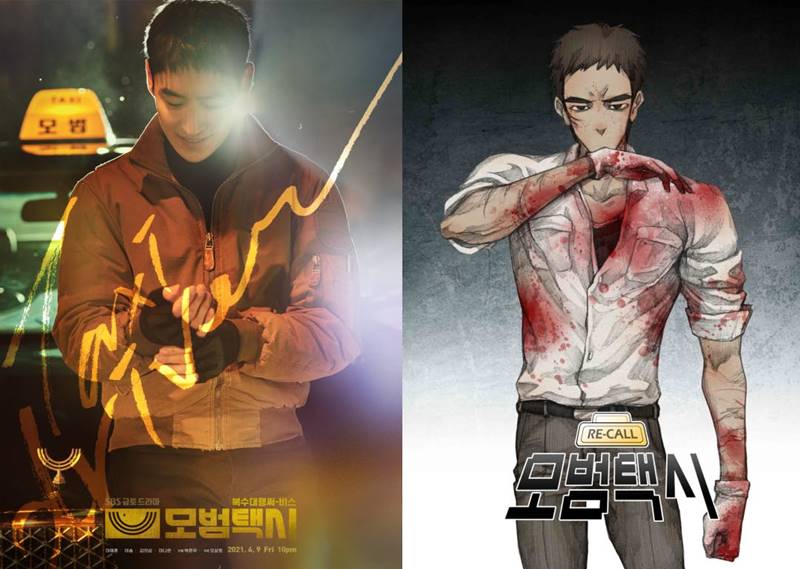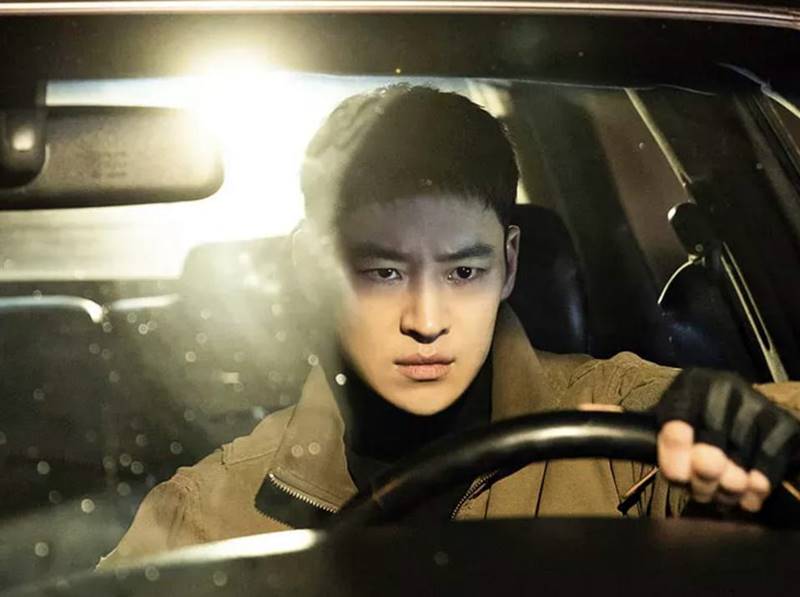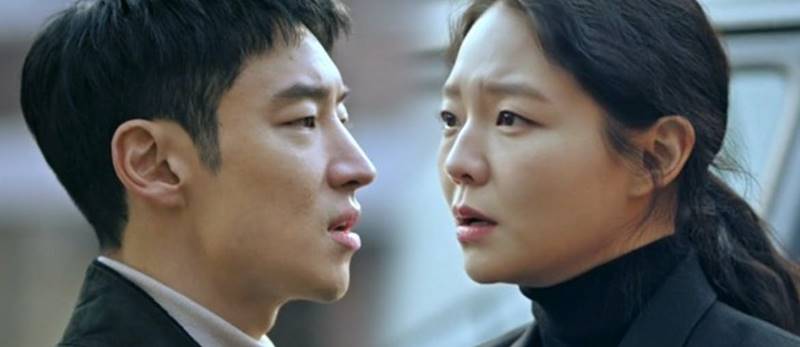
By Jae-Ha Kim
jaehakim.com
June 4, 2021
☆☆☆☆
Kim Do-Gi (played by Lee Je-Hoon)
Kang Ha-Na (played by Esom)
Jang Sung-Chul (played by Kim Eui-Sung)
Ahn Go-Eun (played by Pyo Ye-Jin)
↑Note: Korean names denote the surname followed by the given name.
“Taxi Driver” is a thrilling series in the vein of “The Equalizer,” “Profiler” and “The Pretender.” Rainbow Taxi Service driver by day and justice seeker by (mostly) night, Do-Gi and his team are funded by Sung-Chul, a philanthropist whose parents were murdered decades ago. Sung-Chun says he wants to rehabilitate the serial killers and rapists whose legal punishment doesn’t fit the crimes they committed. So, they capture them, place them in a squalid underground facility not fit for human beings, and — I don’t know what —keep them there until they die?
Ultimately, what this team is hoping for is that this kind of revenge will ensure that the victims’ loved ones have some peace of mind.
Of course, vigilante justice rarely works out well for anyone. Killing a murderer may seem like a good idea at the time, but many victims’ families have said it didn’t give them inner peace. What they really wanted was to hear the perpetrators apologize for their actions.
But for a TV series, revenge is a valid outlet for viewers to unleash their own pent-up anger in a safe environment.
As played by Lee Je-Hoon, Do-Gi is a soft-spoken former elite soldier who has a strong sense of right and wrong. He is seemingly indestructible, no matter how many men gang up to pummel him. Like a Timex watch, he keeps on ticking and, more often than not, bests his foes.
Kim Eui-Sung is so good at playing evil men (“Train to Busan,” “Mr. Sunshine,” “W“) that I kept wondering if his Sung-Chul would turn in a plot twist. (There is a great double cross in this series that I didn’t see coming — but isn’t Sung Chul.)

Some of the most compelling storylines deal with real-life issues that have plagued South Korea. Do-Gi’s young colleague Go-Eun (played by Pyo Ye-Jin) is a computer expert and hacker who is drawn into a case that involves her sister, Jung-Eun (Ryu Yi-Jae), who died by suicide after becoming a victim of molka. In Hangul, 몰카 is a portmanteau for 몰래 (hidden/unknowing) and 카메라 (camera). Hidden cameras in women’s public restrooms have become such an issue that there is a unit of the South Korean police to deal with this crime. In the “Taxi Driver” storyline, Jung-Eun’s boyfriend filmed the two of them having sex and uploaded it. The video became one of the most profitable porn videos and, in the process, made Jung-Eun’s life miserable.
In another story arc, a so-called “philanthropist” houses, feeds and employs mentally and physically disabled workers, preferring orphans who have no family to check in on them. In reality, he abuses them by forcing them to work long hours and beating them into submission. When a young woman is repeatedly raped and seeks help, the Rainbow Taxi Service crew comes to her aid. They also refunnel the company’s profits as compensation for all the workers who had never been paid.
One of the strongest cases involved high school bullying. A boy whose father died years ago and is raised by his hard-working deaf-mute mother is beaten to the point of needing crutches to walk. His revenge isn’t based on monetary compensation. He wants the boys torturing him (and other students) to get a taste of their own medicine. As a passive-aggressive substitute teacher, Do-Gi carries out the perfect plan to instill physical and emotional fear in them. Go-Eun is dubious about carrying out revenge on teenagers, but it’s pointed out that the psychological aspect of being bullied doesn’t disappear upon graduation. It remains with the person as they grow into adulthood.

If there is a foe (besides all the criminals, of course!) in this series, it’s Kang Ha-Na (played by Esom), a righteous prosecutor who is strong enough to stand up to her boss, but not convinced that she should stop the Rainbow Taxi Service from doing what she legally can’t get done. The showrunners did a great job of keeping her alliance in check, which made it exciting for viewers to wonder which direction her character would go.
The ending was strong and tied up loose ends, while leaving open the option for a followup second season, which is a rarity for K-Dramas.
Airdates: Sixteen hour-long episodes aired on SBS from April 9 to May 29, 2021. You may read my review of Season 2 here. (I watched both seasons on Viki.)
Spoiler Alert: The same serial killer murdered Do-Gi’s mother and Sung-Chul’s parents. The only person he loves is his son, who he hasn’t seen since the latter was a young child. Neither knows the other’s true identity. And the only remorse the murderer ever shows is after he learns that the prison guard he beat up (and would’ve killed if given the opportunity) is his own son.
After her assistant is murdered, Ha-Na turns to Do-Gi to get revenge on the killer. It was out of character for the straight and narrow attorney to go against the law for personal vengeance, but it also showed how people view things differently when a crime affects them personally.
Sung-Chul’s partnership with crime boss Baek Sung-Mi (Cha Ji-Yeon) seems conciliatory enough at first. She and her goons oversee the care (such as it is) of the imprisoned and he pays her a hefty fee to do so. But she eventually turns on Sung-Chul, freeing everyone, which endangers his entire team. As horrible as Sung-Mi is, I loved to hate her.
The final episode shows the Rainbow Taxi Service gang realizing that perhaps vengeance isn’t the right thing to do. And they prepare to turn themselves in. But, with the help of Ha-Na, they remain free. The final moments of the finale shows that the team has reunited and gone back to their old business of getting justice for victims. But this time around, they have Ha-Na fully on board.
© 2021 JAE-HA KIM | All Rights Reserved






2 thoughts on ““Taxi Driver” (모범택시)”